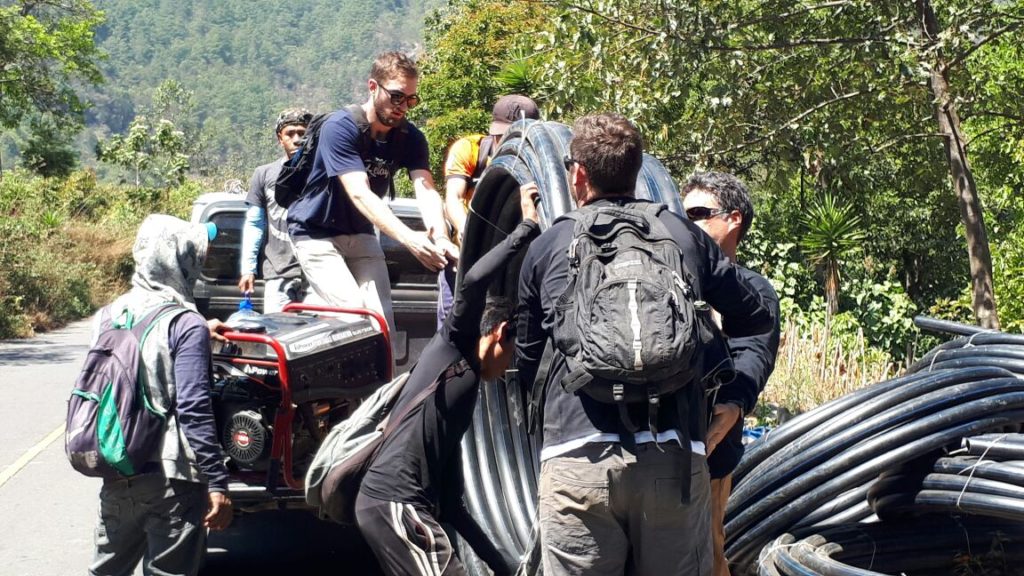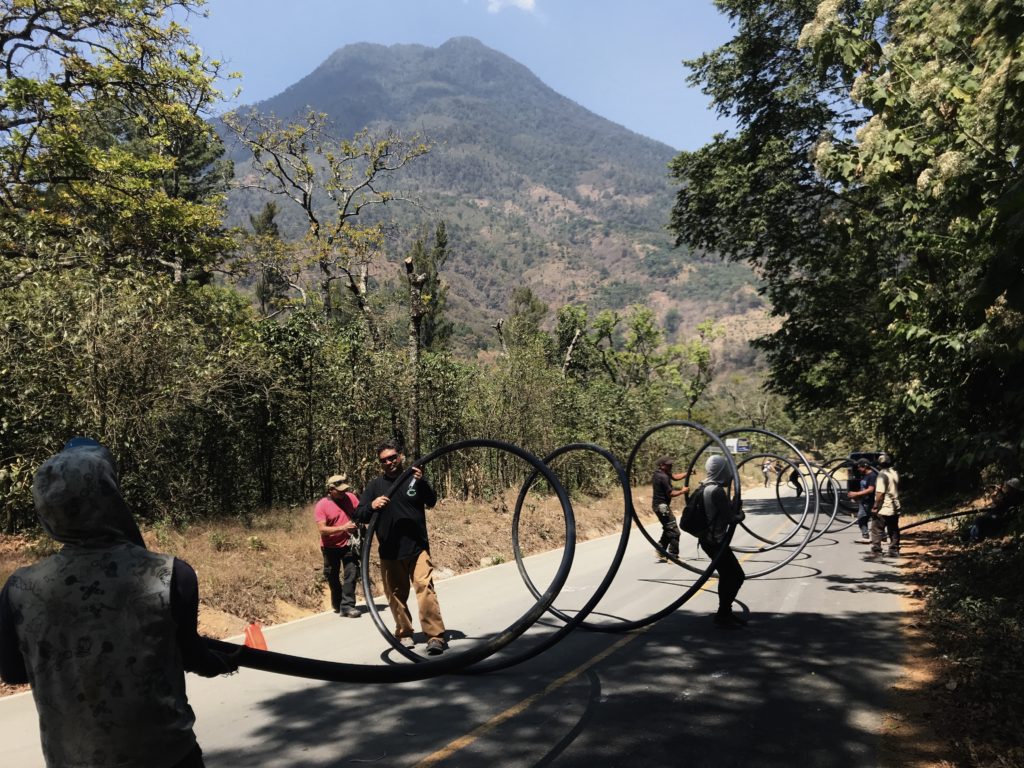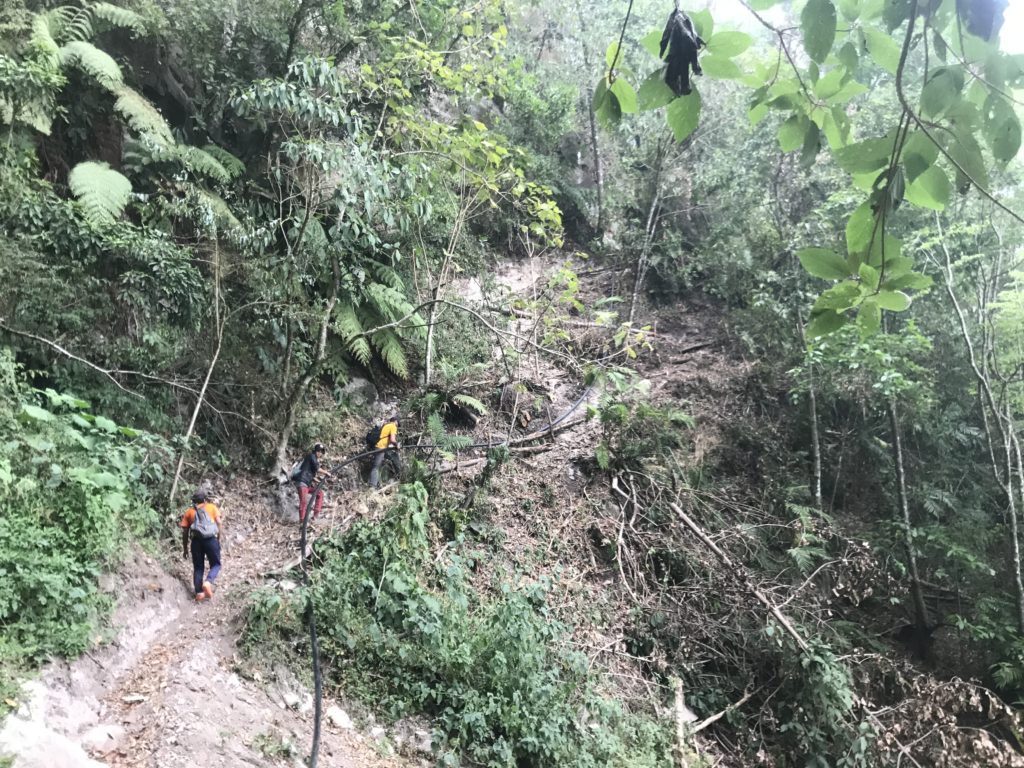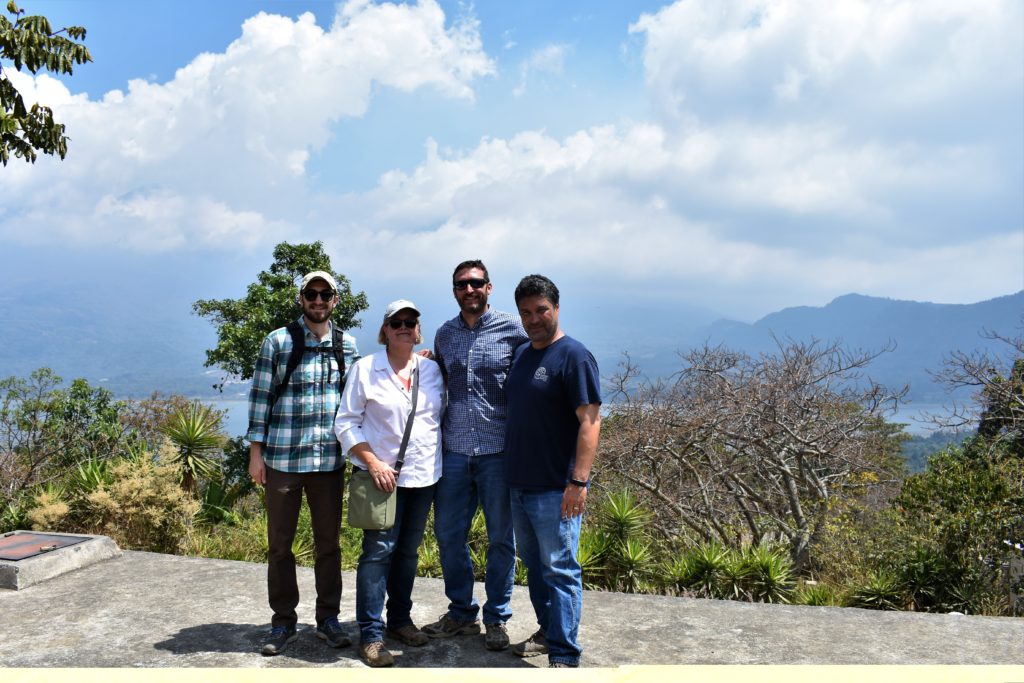Bringing fresh water to Chacayá, Guatemala
Recently, a group of AECOM employees, including myself, Andrew Knipp and Craig Holloway, spent time volunteering in Chacayá, Guatemala, a small, Mayan village where coffee farming is the predominant industry.
Located on the southwestern shore of Lake Atitlán, the 2,500 Chacayá residents currently depend upon untreated lake water for drinking as a result of inadequate water supply systems. This poses serious health risks due to the poor water quality and frequent bouts of toxic cyanobacteria (blue-green algae) blooms that occur in the lake. Boiling the water poses its own challenges, as most in the community rely upon firewood stoves and the increased rate of firewood burning accelerates deforestation and impacts indoor air quality.
Recognizing Chacayá as an area of opportunity to improve infrastructure, accessibility and overall health and quality of life for its residents, AECOM partnered with Engineers Without Borders-USA to set up a volunteer project designed to supply the community with a long-term, sustainable source of fresh spring water.

Caption: AECOM employees Mike Hoffman (foreground), Craig Holloway (right), and Andrew Knipp (left) help load a section of pipe for transport to the work site in the nearby mountains. Weighing over 120 lbs each, the 100m rolls of pipe presented a significant challenge in hauling them up the steep mountain trail for installation. The community organized teams of 20 people to haul and install three-four rolls per day.
In partnership with several local stakeholders, including local and federal governments, the team designed a low-cost, sustainable water supply system comprised of a spring box, 5 kilometers of pipeline and an ultraviolet (UV) disinfection system to facilitate the supply of fresh water to the existing distribution system. The project also includes provision of tools and training to ensure proper operations and maintenance of the system after the project is complete.

Caption: The team unrolls a section of pipe for installation along the road near the base of the San Andres volcano.
On what served as a very successful trip, the team collaborated with village leaders to initiate the design and implementation of what will be among the first community-scale potable water systems in Central America to be built with high-density polyethylene (HDPE) piping, a more durable and safe alternative to traditional PVC.

Caption: Residents of the village of Chacayá install over 5,000m of two inch, HDPE pipe from the mountain spring box to the water distribution tank.
The project team will return to Chacayá in June to finalize construction and begin operation of the system. The team has a five-year engagement commitment with the community and will continue to monitor and evaluate the operation of the system and the health outcomes of the project. We are also evaluating potential follow-up projects with the team of local stakeholders to more directly address the root causes of the lake’s deteriorating water quality, namely untreated wastewater and excessive use of chemical fertilizers in the watershed.

Caption: The AECOM team spent the day with EWB-USA Executive Director Cathy Leslie who happened to be in Guatemala at the same time. The visit consisted of a meeting with project stakeholders at City Hall and a tour of the work site, including this photo opportunity atop the Chacayá water distribution tank overlooking Lake Atitlán.
We’re proud of the team and excited to stand behind a cause that will undoubtedly contribute to long-lasting, positive change for Chacayá and the people who live there.
If you’re interested in learning more about Engineers Without Borders-USA and their projects around the world, or in becoming a member, visit: https://www.ewb-usa.org/







